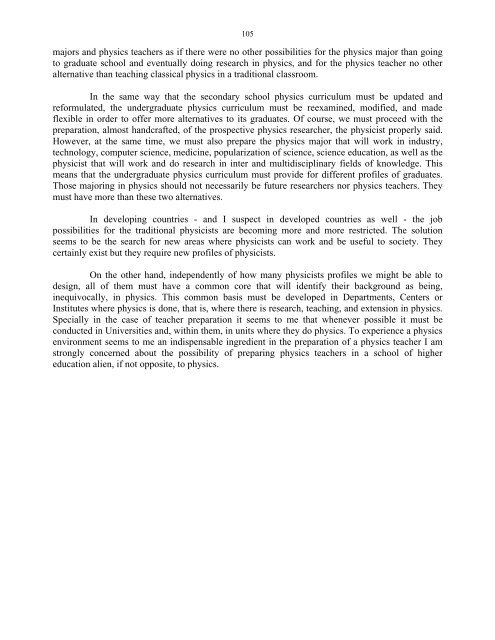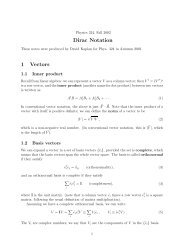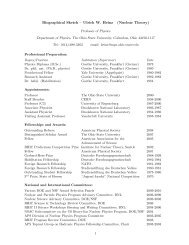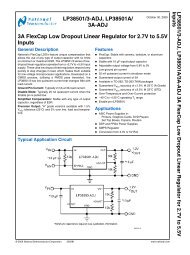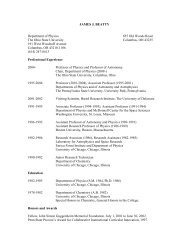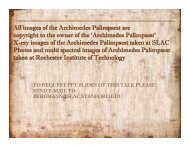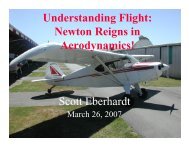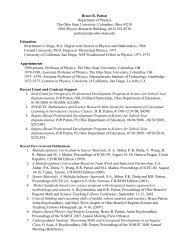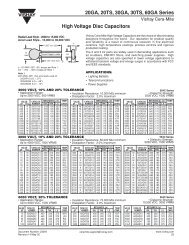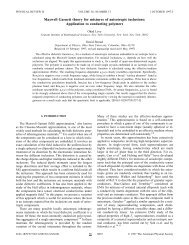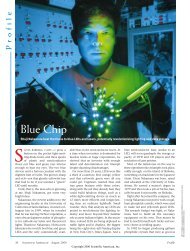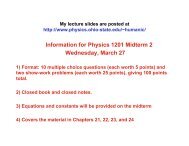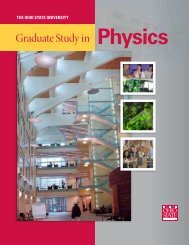Brasil Final Report - Department of Physics - The Ohio State University
Brasil Final Report - Department of Physics - The Ohio State University
Brasil Final Report - Department of Physics - The Ohio State University
Create successful ePaper yourself
Turn your PDF publications into a flip-book with our unique Google optimized e-Paper software.
105<br />
majors and physics teachers as if there were no other possibilities for the physics major than going<br />
to graduate school and eventually doing research in physics, and for the physics teacher no other<br />
alternative than teaching classical physics in a traditional classroom.<br />
In the same way that the secondary school physics curriculum must be updated and<br />
reformulated, the undergraduate physics curriculum must be reexamined, modified, and made<br />
flexible in order to <strong>of</strong>fer more alternatives to its graduates. Of course, we must proceed with the<br />
preparation, almost handcrafted, <strong>of</strong> the prospective physics researcher, the physicist properly said.<br />
However, at the same time, we must also prepare the physics major that will work in industry,<br />
technology, computer science, medicine, popularization <strong>of</strong> science, science education, as well as the<br />
physicist that will work and do research in inter and multidisciplinary fields <strong>of</strong> knowledge. This<br />
means that the undergraduate physics curriculum must provide for different pr<strong>of</strong>iles <strong>of</strong> graduates.<br />
Those majoring in physics should not necessarily be future researchers nor physics teachers. <strong>The</strong>y<br />
must have more than these two alternatives.<br />
In developing countries - and I suspect in developed countries as well - the job<br />
possibilities for the traditional physicists are becoming more and more restricted. <strong>The</strong> solution<br />
seems to be the search for new areas where physicists can work and be useful to society. <strong>The</strong>y<br />
certainly exist but they require new pr<strong>of</strong>iles <strong>of</strong> physicists.<br />
On the other hand, independently <strong>of</strong> how many physicists pr<strong>of</strong>iles we might be able to<br />
design, all <strong>of</strong> them must have a common core that will identify their background as being,<br />
inequivocally, in physics. This common basis must be developed in <strong>Department</strong>s, Centers or<br />
Institutes where physics is done, that is, where there is research, teaching, and extension in physics.<br />
Specially in the case <strong>of</strong> teacher preparation it seems to me that whenever possible it must be<br />
conducted in Universities and, within them, in units where they do physics. To experience a physics<br />
environment seems to me an indispensable ingredient in the preparation <strong>of</strong> a physics teacher I am<br />
strongly concerned about the possibility <strong>of</strong> preparing physics teachers in a school <strong>of</strong> higher<br />
education alien, if not opposite, to physics.


